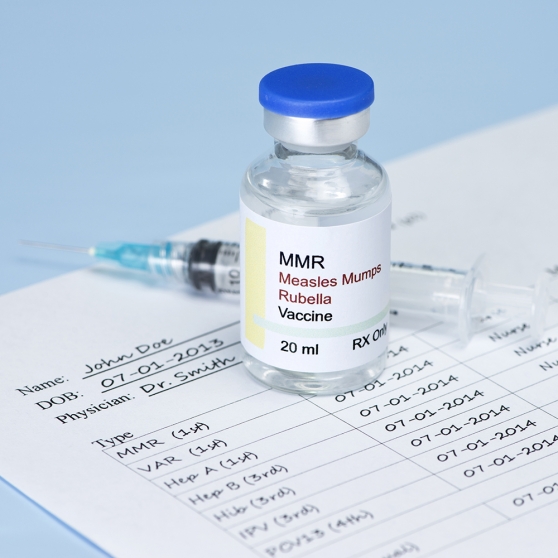A Guide to Childhood Vaccines
The MMR vaccine protects children from three serious viruses. Measles can lead to ear infection, pneumonia, seizures, brain damage and even death. Mumps can lead to deafness, painful swelling of the testicles or ovaries and sterility. If a woman contracts rubella while she is pregnant, it can lead to miscarriage or birth defects. All of these viruses are spread through the air. Vaccines are given in two doses: at 12 to 15 months old and at 4 to 6 years old.
Reviewed by:
Review Date:
July 23, 2015Citation:
Image courtesy of Seanlockephotography | Dreamstime.com Image courtesy of Designua | Dreamstime.com Image courtesy of Jarun011 | Dreamstime.com Image courtesy of Lucidwaters | Dreamstime.com Image courtesy of Alexskopje | Dreamstime.com Image courtesy of Attila Barabás | Dreamstime.com Image courtesy of Jean Paul Chassenet | Dreamstime.com Image courtesy of Sherry Young | Dreamstime.com Image courtesy of Rob3000 | Dreamstime.com Image courtesy of Designua | Dreamstime.com Image courtesy of Madhourse | Dreamstime.com CDC, "Chickenpox (Varicella): Vaccination" CDC, "Meningococcal Vaccine for Preteens and Teens" dailyRx News, "Back to School! Are You Ready?" dailyRx News, "Your Child's First 6 Months of Vaccines" dailyRx News, "Back-to-School Health" CDC, "HPV Vaccine - Questions & Answers" Medline Plus, "MMR Vaccine (Measles, Mumps, and Rubella)" Mayo Clinic, "Polio" Mayo Clinic, "Diphtheria" CDC, "Rotavirus: Vaccination" CDC, "Hepatitis A FAQs for the Public"
Last Updated:
July 23, 2015
